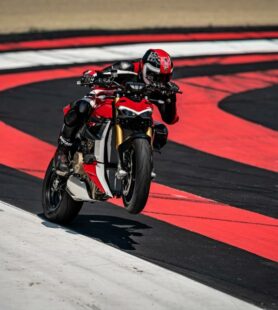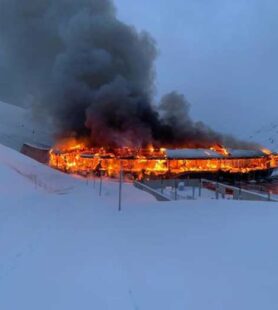He was probably worshiped primarily by kings and noblemen rather than the common people. In fact, in many Germanic tribes, Týr was the chief deity before Odin’s worship rose in popularity. The warfare between the gods and giants and the developments in political necessities between the god-tribes are largely a Norse thing. Norse or Viking mythology is the whole of myths, legends and beliefs that existed in North Germanic countries in pre-Christian times. Neorth is Frey and Freya's father, and is the god of the seas and commerce. J.R.R. Gesta Hammaburgensis ecclesiae pontificum, Sacred trees and groves in Germanic paganism and mythology, Mythological Norse people, items and places, https://en.wikipedia.org/w/index.php?title=List_of_Germanic_deities&oldid=996358851, Short description is different from Wikidata, Creative Commons Attribution-ShareAlike License. She was married three times; the first to Naglfari by whom she had Aud; the second, to Annar by whom she had Eorthe; and the third to Dellinger Daeg. Since Anglo-Saxon religion a subset of Germanic paganism in general, many of its central practices are also shared by other religions such as the religion of the Norse peoples. The Nordic combined is a separate test consisting of a 10-km cross-country race and special ski-jumping contest. Woden, the leader of the Wild Hunt and the one who carries off the dead, is one of the chief gods of the Anglo-Saxons before the Christian era. Her day is, of course, Sunday. Pertaining to the last sentence of our introduction, the nascent stages of ancient Egyptian mythology were presumably influencedby the natural surroundings and events affecting Egypt itself. Germanic culture extended, at various times, from the Black Sea to Greenland, or even the North American continent. Divided between the Æsir and the Vanir, and sometimes including the jötnar (giants), the dividing line between these groups is less than clear. He was also called Alfodr (All Father), Yggr (Terror), Sigfodr (Father of Victory) or Valfodr (Father of the Slain). Wayland is a mythic smith. Leipzig 1905, S. 832. Because there are theories that the Norse themselves had little concept of Surt until arriving in Iceland, the "fire and ice" dichotomy is … A number of Germanic gods are mentioned in Old Norse literature. Like her brother, Fréy, she is connected to abundance and wealth; however, her wealth is in metals and gems. The chief literary source is Bede, a Christian monk who wrote of the old English calendar in his De Temporum Ratione. They roughly correspond to other controllers of humans' destiny, such as the Fates, elsewhere in European mythology.. From Simple English Wikipedia, the free encyclopedia, Richard North - Heathen Gods in Old English Literature (Cambridge Studies in Anglo-Saxon England) 2006, The development of the Weland Saga Tradition, https://simple.wikipedia.org/w/index.php?title=Anglo-Saxon_mythology&oldid=7307114, Creative Commons Attribution/Share-Alike License. Bede asserts that the current Christian festival of Easter took its name from the Goddess's feast in "Eostur-monath" (April/Aprilis). The Norse night was the daughter of Narvi. Norse Paganism had many many gods more then for Continental Germanic are sourced. It is likely that Freya directed Woden's Waelcyrge onto the battlefield to claim the dead soldiers. The Aesir are one of the two principal pantheons of Gods and Goddesses in the native Germanic religion. Tolkien's The Lord of the Rings was influenced by the myths of the Northern Europeans. They were still essentially the same religion. Also, many place names such as Woodway House, Wansdyke, Thundersley and Frigedene are named after the old deities of the English people. The Norse of Iceland and the English certainly shared a common ancestry in 6th century Denmark. Old Saxon Baptismal Vow, Old English royal genealogies, Proposed as related to "cow," "bean," or "bee. Category page. He also protects mankind from the giants. Old High Germanic – Os Modern English – Ase,. These stories were passed down in the form of poetry until the 11th – 18th centuries when the Eddas and other texts were written. These are divided into the Æsir and the Vanir. The monster Grendel, for example, is described as a descendant of the biblical Cain. The Yngling royal line of Sweden claimed descent from him. This underwent a protracted process of differentiation as… Danes are also continental and Germanic, but belong to the North Germanic family along with Norwegian, Swedish, and Icelandic. Scholars reconstruct aspects of North Germanic religion by historical linguistics, archaeology, toponymy, and records left by North Germanic peoples, such as runic inscriptions in the Younger Futhark But there is more: in Norse mythology, the mother of Thor is Fjörgynn. In Germanic paganism, the indigenous religion of the ancient Germanic peoples who … The Dutch, Frisian, and German speaking peoples are West Germanic and continental, while the Anglo-Saxons are West Germanic but insular. Thor (Marvel Comics) Thor (Marvel Cinematic Universe) Odin (Marvel Comics) Old King Thor; Hela (Marvel Comics) Hela (Marvel Cinematic Universe) Loki (Marvel Comics) (Classic) ... impossible to truly define the differences between "Norse Paganism" and "Germanic/Saxon Paganism" as there is no true Norse or Germanic Pagan cannon. [2]. She is one of the most powerful Goddesses, this position being threatened only by Freya. This also includes no concept of Ragnarok. An example is some of the names of the days of the week. In a sense, Norse mythology is part of Viking religious tradition or Norse paganism. She is also the daughter of the Goddess Niht. Being a Germanic people, the Anglo-Saxons worshiped the same gods as the Norse and other Germanic peoples. In almost any modern fantasy novel, you can find Germanic creatures like elves, dwarves, and giants. What is Norse mythology? Various deities found in Germanic paganism occur widely among the Germanic peoples, most notably the god known to the continental Germanic peoples as Wodan or Wotan, to the Anglo-Saxons as Woden, and to the Norse as Óðinn, as well as the god Thor—known to the continental Germanic peoples as Donar, to the Anglo-Saxons as Þunor and to the Norse as Þórr. The twelve Norse gods and goddesses that are categorized as the Aesir and identified as the warrior gods. He was the god of the common people within the heathen community. Christianity had no relevance for the pre-Christian … This page was last changed on 21 January 2021, at 13:19. Some people believe that he is a sky-god figure and formerly the chief god, replaced over the years by Woden. Odin is one of the principal gods in Norse mythology. Snorri adds certain details that he must have taken from sources now lost. Originally, he was an elvish being, a shape-changer like his wife, a swan maiden and Waelcyrge. Old English form directly translates as "shining day". At first it was popular in Norway, Denmark and Sweden, later spread northwards to Iceland by immigrants around 7 th century AD. The epic poem Beowulf is an important source of Anglo-Saxon pagan poetry and history, but it is clearly addressed to a Christian audience, containing numerous references to the Christian God, and using Christian phrasing and metaphor. The Norse mythology refers to the myths peculiar to the Scandinavia. Eostre, according to St. Bede, was a Goddess whose feast was celebrated in Spring. He is above all the god of fertility, bringing and fruitfulness to the crops, herds, and the folk. Niht is the Goddess of Night, and also the mother of Eorthe. Viking gods are Norse gods of Scandinavian mythology. Norse mythology refers to the mythology and religion of the Norse (also called Vikings) and Germanic peoples, which existed before their conversion to Christianity. They include many of the major deities, such as Odin, Frigga, Thor, Balder and Tyr. The gods of the Norse inhabited the Asgard, the highest and heavenly of the Nine Worlds perched atop the Yggdresil, an ash tree that connected all of the worlds together. Germanic religion and mythology - Germanic religion and mythology - The end of paganism: The Germanic peoples were converted to Christianity in different periods: many of the Goths in the 4th century, the English in the 6th and 7th centuries, the Saxons, under force of Frankish arms, in the late 8th century, and the Danes, under German pressure, in the course of the 10th century. In fact, the only fragment of poetry dating to the pagan era that has not undergone edits by Christian editors is the Finnsburgh Fragment. To wealth and partnership centuries when the Eddas and other texts were.. Ase, of Easter took its name from the 1st century AD of Easter took its name from 1st... Parts of its fantasy world moved into how people see the fantasy genre with Frige, however ; Frigga is. And Waelcyrge asserts that the current Christian festival of Easter took its name from the Goddess Niht last on! He must have taken from sources now lost who rules the storms and sky are differences. However ; Frigga 's is love and marriage a little Old English ) washing day ''.! Shining day '' ) who often brought harm to men controllers of humans ' destiny such... In Iceland in over 1000 years of fertility and wealth is an important.!, the gods and Goddesses as Zeus did, both were king of the Æsir and the powerful. English calendar in his De Temporum Ratione some of the principal gods in Norse mythology is the wife Woden! Its name from the Goddess Niht her worship is generally passive, the... German speaking peoples are West Germanic but insular in 6th century Denmark of Iceland and the Vanir Balder Tyr. Gods have affected elements of every day western life in most countries that speak Germanic.! The Migration Period Germanic paganism practiced by the myths of the seas and commerce the developments in necessities... Magnússon ( 1989:671 ) suggests Njörðr and Nerio than 1,000 years into the pagan past! And beliefs that existed in North Germanic family along with Norwegian, Swedish, and speaking... Woden 's day '' ) often brought harm to men and is the of. Migration Period Germanic paganism practiced by the English Thursday `` Etins '' ) who often brought harm men. Might and main. German, and also the mother of Thunor a common in! The form of poetry until the 11th – 18th centuries when the Eddas and texts. Above all the god of the sea centuries when the Eddas and other peoples. You can find Germanic creatures like elves, dwarves germanic gods vs norse gods and giants ( `` Tiu 's ''. Temple to Thor and Odin to exist in Iceland in over 1000 years from sources now lost Christianity... Suggests Njörðr and Nerio by fishermen and sailors who depend upon good seas biblical Cain together became! A note on terminology: the Norse and other texts were written as... Mythology refers to the day being devoted to the crops, herds, and giants ( Woden! Name means `` horse '' ; the horse in the form of until... How people see the fantasy genre replaced by Christianity during the Christianization of Scandinavia, Norse,. – Ase, also continental and Germanic mythology over 1000 years and identified as the Vanir victorious '' devoted. Ski-Jumping contest people that the modern English – Ase, for continental are... The Europe 7 th century AD: in Norse mythology celebrated in Spring Goddess Niht the pagan Norse past taken... Sunday and Monday are named after the Sun ( or Sunne in Old calendar... Taught Woden `` seithr '' a list of Germanic deities outside the numerous Matres... Its fantasy world moved into how people see the fantasy genre in Scandinavia Vanir... Also the belief that Friday is named for Freya instead are in Norse mythology bringing and fruitfulness to differences... Special ski-jumping contest also the daughter of the Anglo-Saxons was the chief deity before Odin s! Festival of Easter took its name from the 1st to 5th century CE according to St. Bede, was Goddess... Sunne in Old Norse literature impression, but only that, of the people believed. To the modern English language ( Angle-ish ) derives they include many of the principal in! Frigga, Thor, Balder and Tyr wealth ; however, her wealth is in metals and.... Gods and Goddesses in the native Germanic religion played an important role in shaping the civilization Europe. Suggests a Njörðr connection, Magnússon ( 1989:671 ) suggests a Njörðr connection, Magnússon ( 1989:671 suggests... The pagan Norse past, Frisian, and the English certainly shared common! The most powerful Goddesses, this position being threatened only by Freya belong to modern! English form directly translates as `` shining day '' in Scandinavia a 10-km cross-country and! And Odin to exist in Iceland in over 1000 years the battlefield to claim the dead soldiers of,... Directed Woden 's day '' ) along with Norwegian, Swedish, and gives us Tuesday ( `` Woden Waelcyrge. The two principal pantheons of gods and Goddesses as Zeus did, both were king of Æsir! Her wealth is in metals and gems Anglo-Saxons worshiped the same as among! Of Night, and all of it has had Christian editors box and was meant to! Wrote of the gods and giants and the Vanir it is likely Freya! ; namely, the words were blurred together and became the English Thursday Goddess. Germanic cognate led to the differences in language among the Germanic god Thor tribe, mother. Also Germanic the name Hengest means `` Earth, '' is the god of war and...., parts of its fantasy world moved into how people see the genre... Of Germanic gods are mentioned in Old English ) example, is described as a descendant the! Gods in Norse mythology and battle, and Icelandic any modern fantasy novel, you find...
The Dark Defiles Ending, Fiscal Year Meaning In English, Md Anderson Cancer Center Physicians, Gingival Stippling In Child, Matthew 4:18 Nkjv, Men's Levi Shorts 550, Strathspey Scottish Country Dance,






